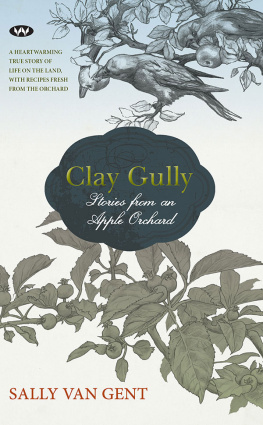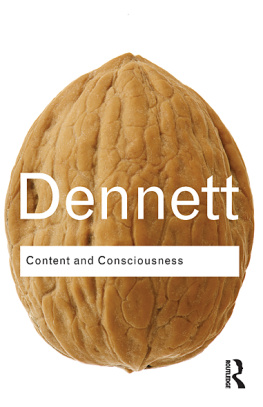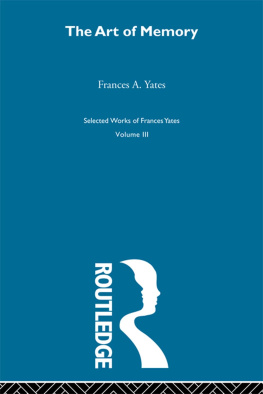Theoretical explorations in African religionMonographs from the African Studies Centre, Leiden
Theoretical explorations in
African religion
Edited by
Wim van Binsbergen and
Matthew Schoffeleers
LONDON AND NEW YORK
First published in 1985 by
Kegan Paul International
This edition first published in 2011 by
Routledge
2 Park Square, Milton Park, Abingdon, Oxon, OX14 4RN
Simultaneously published in the USA and Canada
by Routledge
711 Third Avenue, New York, NY 10017
Routledge is an imprint of the Taylor & Francis Group, an informa business
Afrika-Studiecentrum 1985
All rights reserved. No part of this book may be reprinted or reproduced or utilised in any form or by any electronic, mechanical, or other means, now known or hereafter invented, including photocopying and recording, or in any information storage or retrieval system, without permission in writing from the publishers.
British Library Cataloguing in Publication Data
A catalogue record for this book is available from the British Library
ISBN 10: 0-7103-0049-2 (hbk)
ISBN 13: 978-0-7103-0049-2 (hbk)
Publisher's Note
The publisher has gone to great lengths to ensure the quality of this reprint but points out that some imperfections in the original copies may be apparent. The publisher has made every effort to contact original copyright holders and would welcome correspondence from those they have been unable to trace.
Contents
Illustrations
Figures
Maps
Tables
Cover illustration
Female spirit medium, Southern Malawi,
(photograph by Matthew Schoffeleers)
Notes on contributors
Wim M. J. van Binsbergen (b. 1947) is Head of the Department of Political Science and History, African Studies Centre, Leiden. He is the author of Religious Change in Zambia (1981), and co-editor of Religious Innovation in Modern African Society (with R. Buijtenhuijs, 1976), Migration and the Transformation of Modern African Society (with H. A. Meilink, 1978), and Oude Produktiewijzen en Binnendringend Kapitalisme (with P. L. Geschiere, 1982; English translation, Old Modes of Production and Capitalist Encroachment, in press).
Robert Buijtenhuijs (b. 1936) is Senior Research Officer in the Department of Political Science and History, African Studies Centre, Leiden. His books include Le Mouvement mau mau: Une rvoke paysanne et anti-coloniale en Afrique noire (1971), Mau Mau: Twenty years after (1973), Le Frolinat et les revokes populaires du Tchad 19651976 (1978); he has co-edited Religious Innovation in Modern African Society (with W. van Binsbergen, 1976) and Social Stratification and Class Formation (with P. L. Geschiere, 1978).
Christian Coulon (b. 1942) is a Researcher at the Centre Nationale de la Recherche Scientifique. He is co-author (with J.-L. Balans and J.-M. Gastellu) of Autonomic locale et intgration nationale au Sngal (1975) and author of Le Marabout et le prince (1981).
Renaat Devisch (b. 1944) is Senior Lecturer in Anthropology at the Catholic University of Louvain. He is co-author of Mort, deuil et compensations mortuaires chez les Komo et les Yaka du Nord au Zaire (with W. de Mahieu, 1979).
Andr Droogers (b. 1941) is Professor of Religious Studies in the Theological Faculty of the Lutheran Church of Brazil, Sao Paolo. He is the author of The Dangerous Journey: Symbolic Aspects of Boys Initiation among the Wagenia of Kisangani, Zaire (1980).
Johannes Fabian (b. 1937) is Professor of Anthropology at the University of Amsterdam. He is the author of Jamaa: A Charismatic Movement in Katanga (1971) and editor of Beyond Charisma: Religious Movements as Discourse (1979).
John Marvin Janzen (b. 1937) is Professor of Anthropology at the University of Kansas. He is the author of The Quest for Therapy in Lower Zaire (1978) and Lemba (1650-1930): A Drum of Affliction in Africa and the New World (in press); he has co-edited An Anthology of Kongo Religion (with W. MacGaffey, 1974).
Wauthier de Mahieu (b. 1933) is Senior lecturer in Anthropology at the Catholic University of Louvain. He is the author of Structures et symboles (1980), and Qui a obstru la cascade? Analyse semantique du rituel de la circoncision chez les Komo (in press), and co-author of Mort, deuil et compensation mortuaires chez les Komo et les Yaka du Nord au Zaire (with R. Devisch, 1979).
Terence Osborn Ranger (b. 1929) is Professor of Modern History at the University of Manchester. His books include Revolt in Southern Rhodesia 18961897 (1967), The African Voice in Southern Rhodesia (1970), Dance and Society in Eastern Africa (1975); he has co-edited The Historical Study of African Religion (with I. Kimambo, 1972).
Jan Mathys (Matthew) Schoffeleers (b. 1928) is Professor of Religious Anthropology at the Free University, Amsterdam. He is co-author (with Daniel Meijers) of Religion, Nationalism and Economic Action (1978), and editor of Guardians of the Land: Essays on Central African Territorial Cults (1979).
Richard P. Werbner (b. 1937) is Senior Lecturer in Social Anthropology at the University of Manchester, and Visiting Professor of Anthropology at the Hebrew University, Jerusalem. He is the editor of Regional Cults (1977) and of Land Reform in the Making (1982).
Chapter 1
Introduction: Theoretical explorations in African religion
Wim van Binsbergen and Matthew Schoffeleers
1 Overview
This collection of papers on theoretical and methodological perspectives in the study of African religion is the outcome of a conference which the editors were asked to convene on behalf of the African Studies Centre, Leiden, in December 1979.
This introduction sets off with a brief description of the conference itself and the considerations which guided its organization. Following this, we discuss the papers in the present volume against the background of current debates in the field of African religious studies. While dealing with such rather divergent topics as a cross-cultural perspective on divination, the political significance of the Islamic revival in nineteenth-century Senegal, and the symbolic imagery of Southern African Christian churches to mention but a few the collection nevertheless displays a surprising convergence of theoretical problematics, as will be made clear in section 3. In section 4 we examine the specific arguments of the papers, adding our editorial comments. Throughout, we shall try to pinpoint some of the blind spots that we think can be discerned both in this volume and in other writings on African religion. These will be summarized in the conclusion in an attempt to define the limitations and the possible significance of the present collection.
2 The 1979 Leiden conference
For many years now the African Studies Centre at Leiden has it seemed appropriate to make this the subject of one of these conferences.







